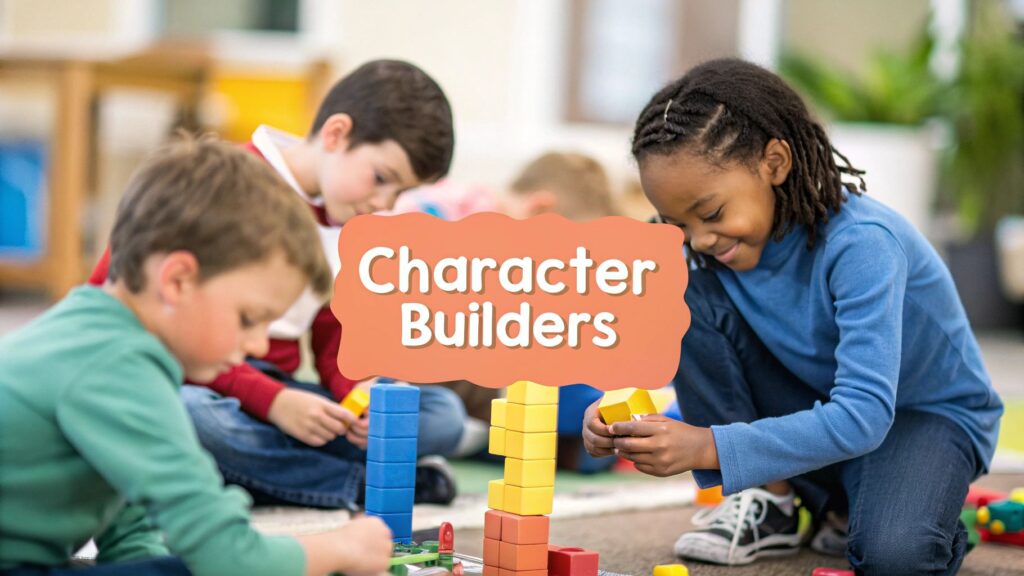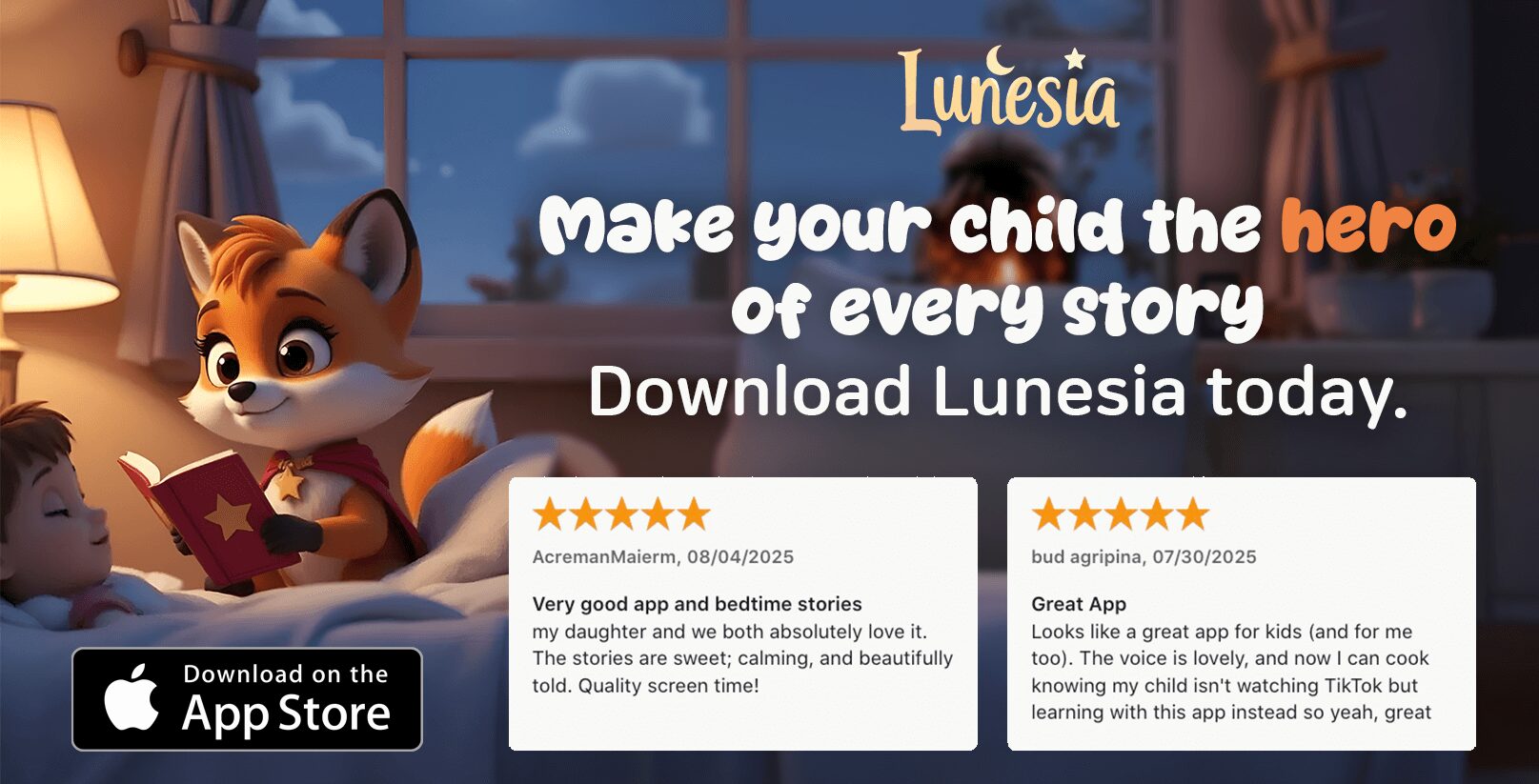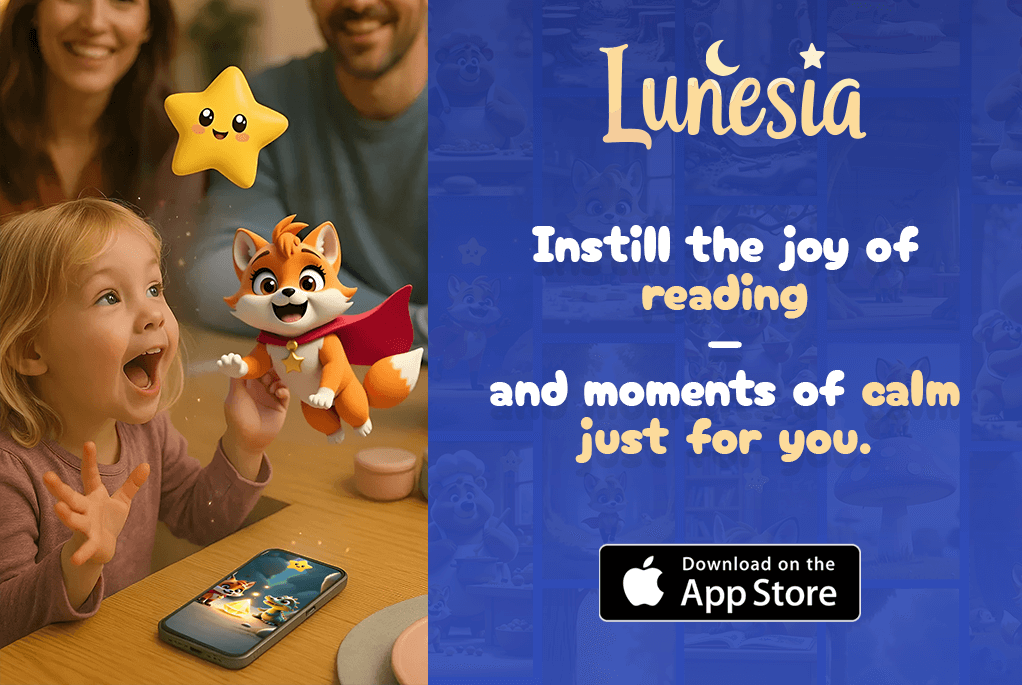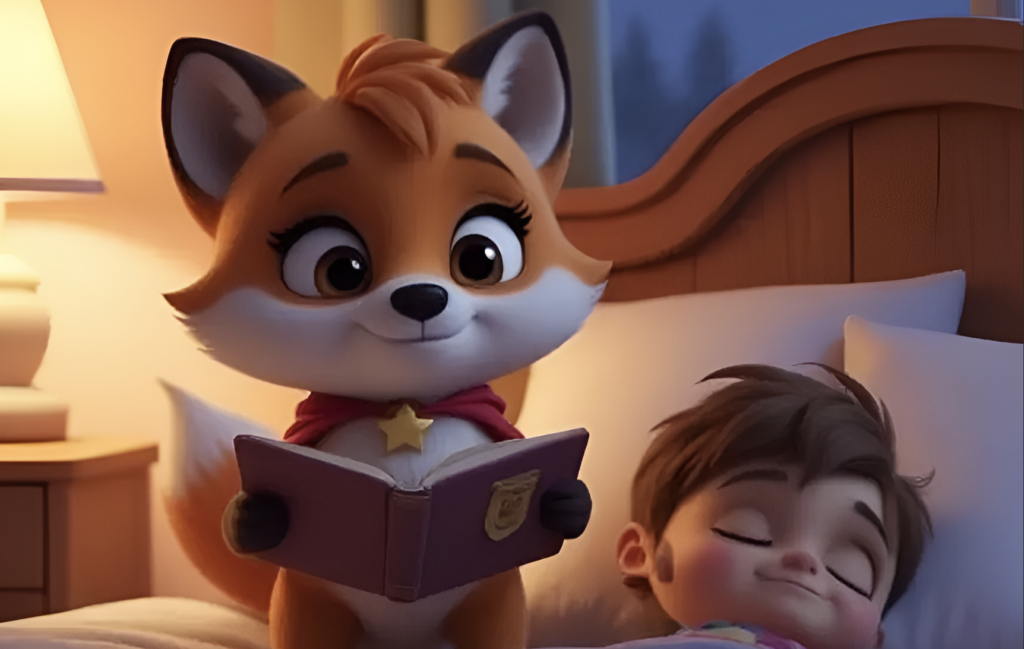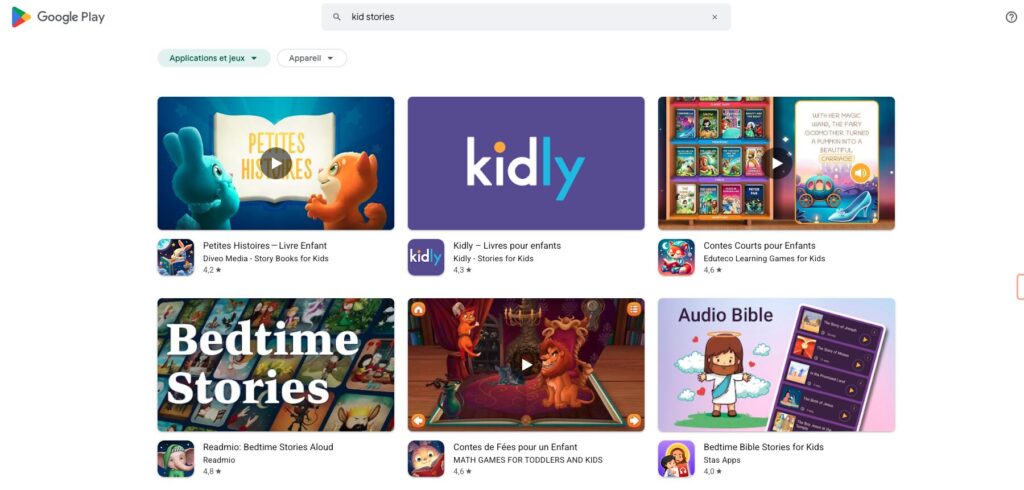Ever feel like you’re trying to teach astrophysics to a goldfish? That's what explaining "kindness" or "patience" to a five-year-old can feel like. One minute, they’re sharing beautifully; the next, a full-blown meltdown over the wrong color cup feels like an international incident. What if you had a secret toolkit to turn those chaotic, everyday moments into powerful character-building opportunities? This isn't about raising perfectly behaved robots; it's about nurturing kind, courageous, and resilient little humans.
And here’s a secret you might not realize: you’re already perfectly equipped to do it. Research from Harvard University confirms that moral development is 'made, not born.' This means every single day offers a chance to shape your child’s inner compass. Forget boring lectures; we’re diving into genuinely fun character building activities for kids aged 2 to 7 that you can start today. Ready to turn daily challenges into moments of growth (and maybe even reclaim five minutes to drink your coffee while it's still hot)? Let’s begin.
1. The 'Kindness Mission': Turning Everyday Errands into Empathy Adventures
Ever wonder how to teach a concept as big as empathy to a child who still thinks socks are a food group? Let's turn a trip to the grocery store into a secret agent mission. The 'Kindness Mission' transforms mundane errands into an exciting quest where your child is a kindness detective, spotting opportunities to help others. It’s not a lecture on being nice; it’s a game.
This is one of the most powerful character building activities for kids because it frames helping as fun, not a chore. By gamifying compassion, you're literally helping their brain form connections that associate kindness with joy. You're building a foundation of social responsibility that will stick with them for life.
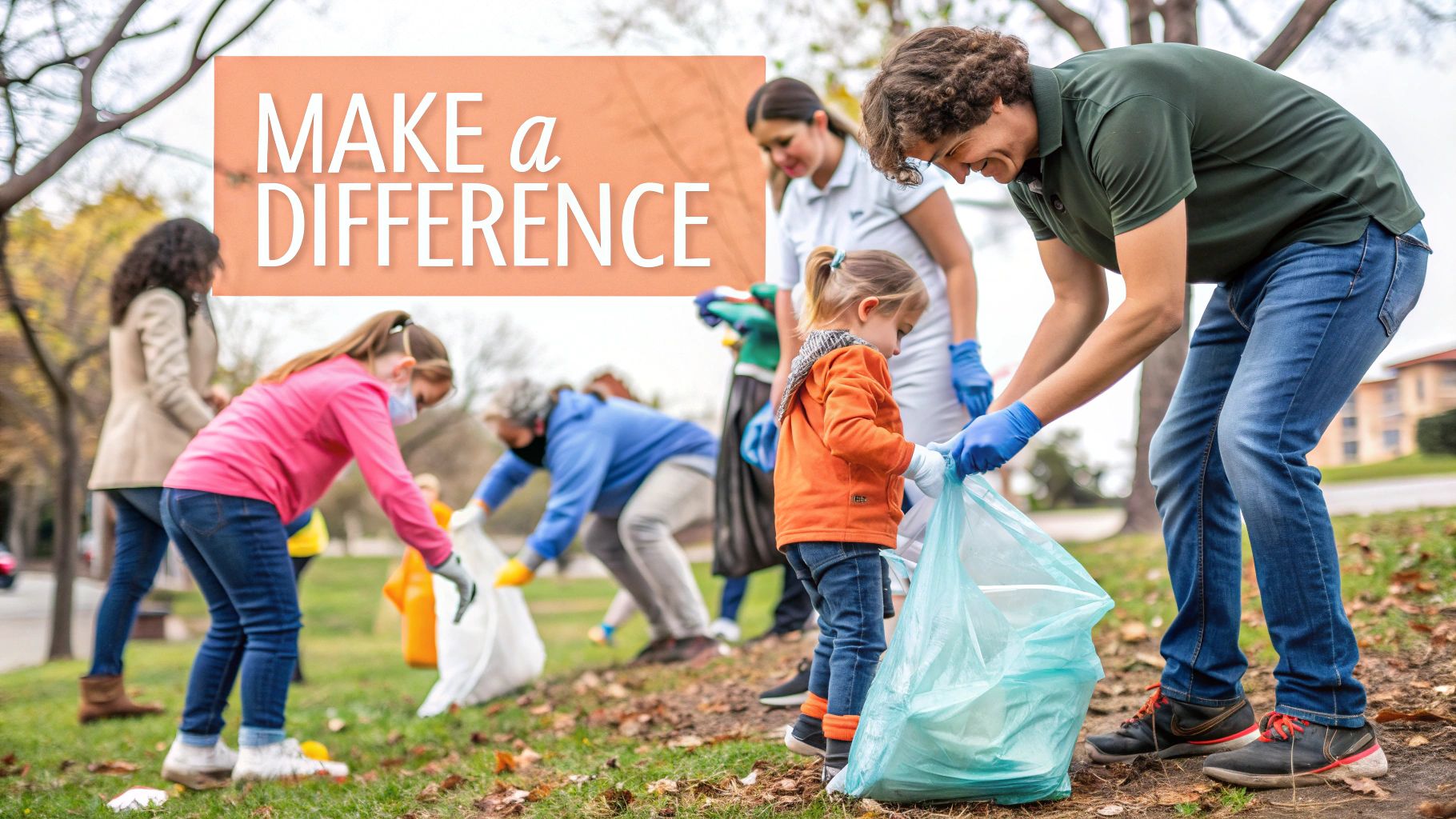
How to Launch Your Mission
Getting started is as easy as whispering, "Okay, agent, here's your mission…" Before you leave the house, hold a fun 'mission briefing.' This builds excitement and gives them a sense of ownership.
Here are a few mission ideas to try immediately:
- Grocery Store Mission: Your mission, should you choose to accept it, is to find someone who dropped something and help them pick it up.
- Park Mission: Offer a friendly push to someone on the swings who looks like they're waiting.
- Neighborhood Mission: Create a top-secret 'thank you' card for your mail carrier and leave it in the mailbox.
Why It Works So Well
This activity connects an abstract idea like "kindness" to something your child can physically do. Afterward, ask, "How do you think that person felt when you helped them?" This simple question is the secret sauce—it helps them connect their action to someone else’s feelings.
Want to keep the mission going at home? The interactive stories in the Lunesia app are a perfect training ground. Children don’t just listen; they make choices that directly affect the characters. They see firsthand how a kind decision can save the day, building their empathy muscles in a safe, engaging, and totally ad-free environment.
2. Team Sports and Cooperative Games
How do you teach a child that working together is more powerful than going it alone? Put them on a team! Team sports and cooperative games are a dynamic playground for learning collaboration. It's more than just running around; it’s a living lesson in working toward a common goal, communicating, and learning that every player matters.
These are powerhouse character building activities for kids because they teach resilience and sportsmanship in real-time. A 2020 study showed that children in team sports have better social skills and emotional regulation. They learn to handle wins with humility and losses with grace—skills that are essential far beyond the playing field.
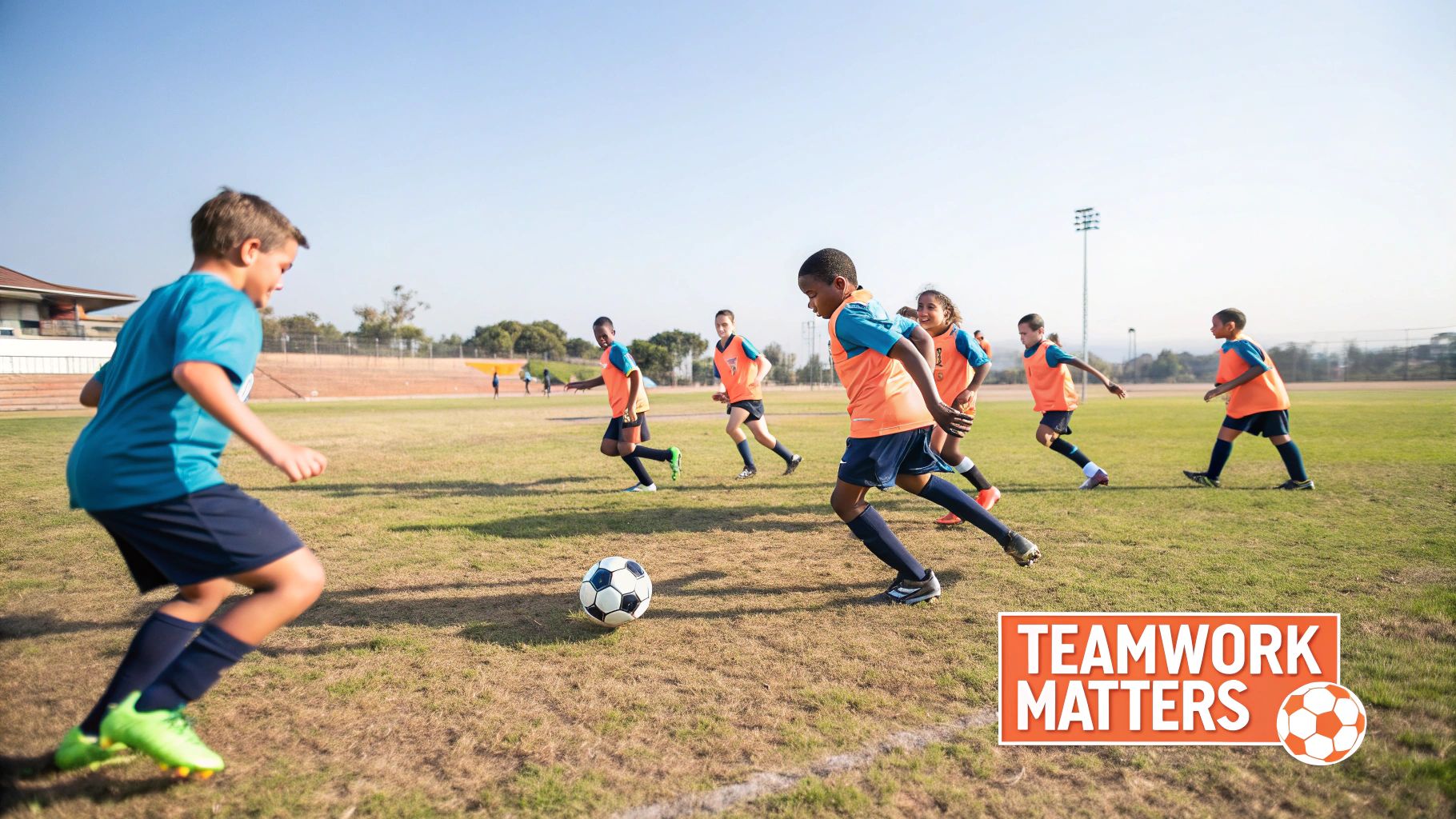
How to Get in the Game
Choosing the right program is everything. Look for a league or class where the coach emphasizes participation and effort over winning at all costs. The goal is fun and development, not creating a future Olympian (unless that happens by accident!).
Here are a few great starting points:
- Local Rec Leagues: These often prioritize fun and core values like respect and responsibility.
- Cooperative Games: Think group parachute games or building a giant fort together. These remove competition and focus purely on teamwork.
- "Mommy & Me" Classes: For the 2-4 age group, these introduce sharing and taking turns in a gentle, structured way.
Why It Works So Well
Team activities make cooperation tangible. Your child directly experiences how passing the ball helps a teammate score. After a game, ask, "What was one thing a teammate did that helped our team today?" This reinforces the value of everyone's contribution.
To practice these skills screen-side, Lunesia offers adventures where characters must cooperate to solve problems. Your child makes choices that help characters work together, seeing firsthand how collaboration leads to success. It’s a perfect way to build social skills in a fun, story-driven format—and it gives you a guilt-free break while they learn.
3. Growth Mindset Challenges and Goal Setting
What if your child could see a tough puzzle not as a frustrating wall, but as an exciting adventure? That's the magic of a "growth mindset," the belief that our abilities aren't fixed—they can grow with effort. Growth Mindset Challenges teach this by turning learning into a game of progress, not perfection.
This is one of the most transformative character building activities for kids. Championed by Stanford psychologist Carol Dweck, this approach helps children replace "I can't do it" with the more powerful "I can't do it yet." That one tiny word builds incredible resilience and a love of learning that will last a lifetime.
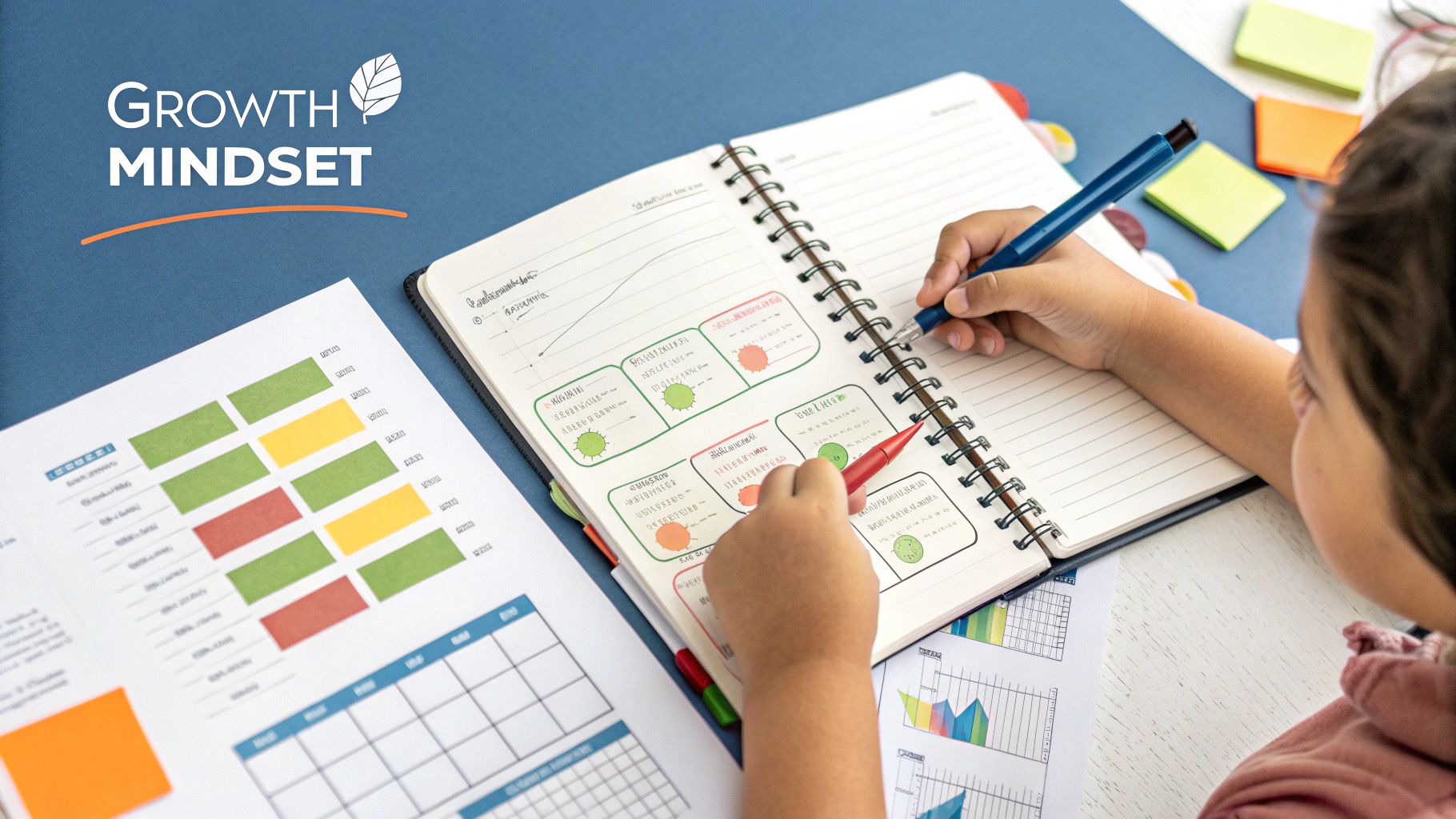
How to Launch Your Mission
The secret is to focus on the process, not just the result. Start with small, achievable goals you can track together, making their progress visible and exciting.
Here are a few ideas you can start this week:
- The 10-Minute Tidy Streak: Can we put away toys for 10 minutes every day for a week? Use a sticker chart to celebrate the effort, not just the perfectly clean room.
- The 'Mistake of the Week' Jar: Create a family tradition where everyone shares a mistake they made and what they learned. This shows them that even parents mess up, and it's how we learn!
- The 'Puzzle Master' Challenge: Choose a jigsaw puzzle that's just a little too hard. Work on it together, celebrating every piece and talking through frustration.
Why It Works So Well
This approach teaches children to embrace challenges. When you praise their effort ("I love how you kept trying different ways to solve that!"), you reinforce that hard work is what truly matters. It builds the grit they need to tackle anything life throws at them.
The stories in the Lunesia app are designed around this very principle. When a character faces a tough choice or a scary monster, your child gets to decide what happens next. This hands-on experience shows them that persistence and creative thinking can change the outcome, building their confidence in a fun, interactive world where they are the hero.
4. Responsibility and Chore Systems: Building Life Skills One Chore at a Time
How do you raise a child who sees themselves as a capable, contributing member of the family, not just a tiny, demanding guest? It starts with chores. No, this isn't about turning your home into a boot camp; it's about giving kids meaningful, age-appropriate tasks that build a powerful sense of competence and belonging.
These systems are among the most foundational character building activities for kids because they teach accountability and work ethic. By contributing to the household, children learn that everyone plays a role in making a family work. That sense of ownership is a cornerstone of a strong character.
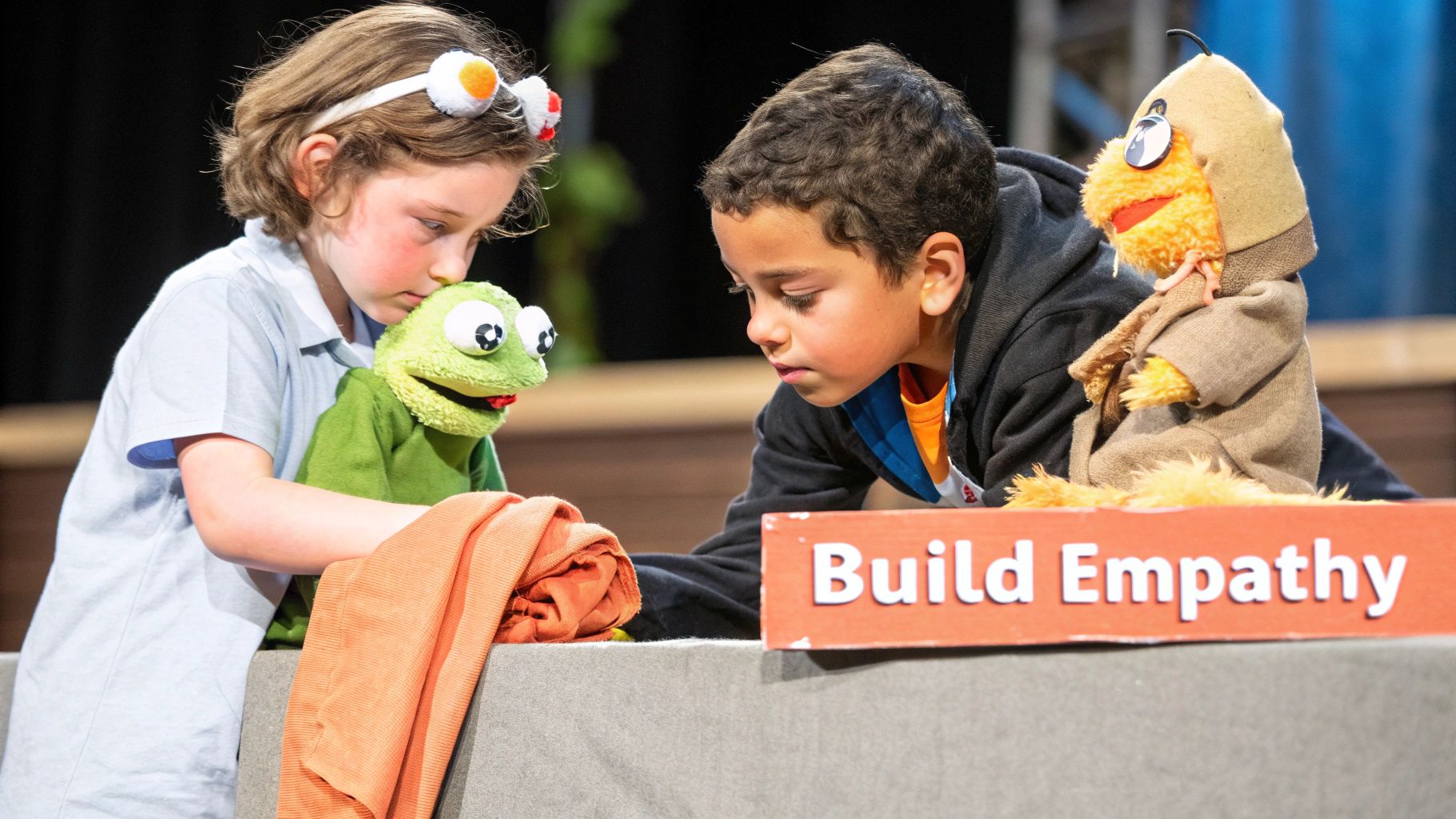
How to Build Your System
The key is to start small and focus on contribution, not perfection. Frame chores as "family jobs" that help everyone.
Here are a few ways to implement this for ages 2-7:
- The Montessori Method: Even a two-year-old can put their toys in a basket, wipe a small spill with a cloth, or help put their shoes away.
- A "Beat the Clock" Game: Set a timer for five minutes and see how many toys can be put back in the bin. Turn it into a fun challenge!
- A Picture Chart: For pre-readers, use a visual chart with pictures of tasks (like a drawing of a toothbrush or a pet bowl). Let them put a sticker on it when the job is done.
Why It Works So Well
This approach directly connects your child's actions to the family's well-being. When you work alongside them at first, you're not just teaching a task; you're modeling teamwork. It builds true independence and self-reliance.
To make this process even smoother, it's all about positive reinforcement. For parents exploring how to balance chores without constant battles, you can learn more about creating an effective reward system for toddlers. This approach helps tie effort to positive outcomes without relying solely on material rewards.
5. Empathy-Building Role-Play and Perspective-Taking
What if your child could walk a mile in their friend’s shoes without ever leaving the living room? That's the magic of role-play. By acting out different scenarios with puppets or stuffed animals, children get to try on different emotions and see the world from another point of view. It’s like a dress-up game for feelings, and it’s a powerful way to build emotional intelligence.
This is one of the most effective character building activities for kids because it directly teaches them to consider why someone acts a certain way. This builds a crucial foundation for resolving conflicts and showing compassion.
How to Launch Your Mission
Keep it playful and low-pressure. Puppets are fantastic for this, as they often make it easier for kids to express big emotions.
Here are a few scenarios to act out:
- The Shared Toy Scenario: Two stuffed animals both want the same block. Let your child play both roles to feel what it's like to want something and what it's like to have to wait.
- The "Ouchie" Scenario: One doll accidentally knocks another one over. How does the fallen doll feel? What can the first doll do to make it better?
- The 'Feeling Detective' Game: Make a sad face. Ask, "What do you think happened to make me feel this way?" Then, swap roles.
Why It Works So Well
Role-playing moves empathy from a big, fuzzy idea to a practiced skill. Asking "I wonder…" questions like, "I wonder how the teddy bear felt when the bunny took his carrot?" helps them connect actions to feelings. Beyond traditional play, creative crafts can also foster patience; this helpful guide to teaching kids to crochet is a great starting point for another hands-on activity.
For more structured practice, these empathy-building activities for preschoolers offer a treasure trove of ideas. They reinforce the same skills your child will use in Lunesia’s interactive stories, where every choice helps them understand a character’s feelings and see the direct impact of their own decisions on the world around them.
6. Gratitude Practices and Appreciation Exercises
Is it possible to teach kids to appreciate what they have in a world that’s constantly screaming "I want"? Absolutely. Gratitude practices are simple, structured activities that shift a child’s focus from what’s missing to what’s abundant. It turns appreciation into a daily habit of noticing the good.
This is one of the most powerful character building activities for kids because it actively rewires their brain for positivity. Research from the Greater Good Science Center at UC Berkeley shows that gratitude boosts happiness, reduces anxiety, and improves relationships. It's about building a resilient mindset that finds joy in the everyday.
How to Launch Your Mission
Integrating gratitude doesn't require grand gestures; it thrives on consistency. Choose a time that works for your family, like dinnertime or bedtime, and make it a warm, pressure-free ritual.
Here are a few mission ideas to try:
- "Rose, Thorn, Bud" at Dinner: Each person shares their "rose" (the best part of their day), their "thorn" (a tricky part), and their "bud" (something they're looking forward to).
- Bedtime Thankfuls: As you're tucking them in, ask, "What was one happy thing that happened today?" It could be as simple as "eating yummy strawberries."
- Thank-You Note Blitz: Once a month, dedicate an afternoon to drawing thank-you pictures for teachers, grandparents, or the friendly librarian.
Why It Works So Well
This activity helps children connect positive feelings to people and experiences. When you make gratitude a regular conversation, you give your child the words to express it. It’s an exercise in mindfulness that calms anxiety and builds emotional strength.
For a wonderful digital tool, the stories in the Lunesia app often present scenarios where characters show appreciation. Children can make choices that lead to acts of kindness and see how expressing gratitude positively impacts the story, reinforcing these important values in a way they’ll remember.
7. Problem-Solving Challenges and Critical Thinking Games
How do you prepare a child for a future filled with problems you can't even predict? You don't give them answers; you teach them how to find their own. Problem-Solving Challenges turn your child into a creative inventor and a resilient thinker. The goal isn't finding the "right" answer, but celebrating the process of trying, failing, and trying again.
These are powerhouse character building activities for kids because they build intellectual courage. Instead of seeing a problem as a scary obstacle, children learn to view it as an exciting puzzle to be cracked. This mindset is crucial for developing confidence.
How to Launch Your Challenge
The key is to present a fun, low-stakes challenge and then step back. Your job is to be the cheerleader, not the hero who swoops in with the solution.
Here are a few challenge ideas for little ones:
- The Pillow Fort Challenge: Can you build a fort that's big enough for two people using only couch cushions and one blanket?
- The Leaky Bottle Challenge: Give them a plastic bottle with a few small holes and ask them to figure out how to carry water across the yard without losing it all.
- The "Get the Toy" Challenge: Place a favorite toy just out of reach. Give them a few household items (like a paper towel roll or a spatula) and see how they solve it.
Why It Works So Well
This activity teaches children that "failure" is just information. When a fort falls, they don't see it as a loss; they see a chance to build a stronger base next time. After, ask, "What was the trickiest part?" or "What would you do differently next time?"
This process of trial and error is at the heart of Lunesia’s interactive stories. Children are constantly presented with mini-dilemmas that require them to think through the consequences. It's a playful, narrative-driven way to sharpen critical thinking, building resilience one story at a time. For more ideas, you can find valuable insights on how to teach critical thinking skills to your child.
8. Conflict Resolution and Peer Mediation Training
What if your kids could solve their own squabbles over toys without you playing referee for the tenth time today? It's possible! Conflict resolution training gives children a simple toolkit to navigate disagreements peacefully. Instead of just separating them, this approach empowers them to understand the problem and find a solution together.
This is one of the most vital character building activities for kids because it teaches them that conflict isn't just about winning. It’s an opportunity to build empathy. By learning to handle disagreements constructively, they develop communication skills and emotional intelligence that will serve them for life.
How to Launch Your Mission
Introduce these tools during a calm moment, not in the heat of a fight. You can create a "Peace Corner" in your home—a designated spot with comfy cushions where anyone can go to cool down.
Here are a few tools to try:
- The Peace Table: Set up a small table where siblings can go to talk. The rule: only the person holding the "talking stick" (a special rock or stuffed animal) can speak.
- Use a Timer: For shared toys, a simple kitchen timer can be a neutral, unbiased "decider" on when it's time to switch.
- Practice "I Feel…" Statements: Model how to say, "I feel sad when you take my toy because I wasn't finished." This helps them express feelings without blaming.
Why It Works So Well
This method transforms children from reactive fighters to proactive problem-solvers. It gives them the words they need to express their big feelings, which is the key to preventing so many tantrums and meltdowns.
For a gentle way to introduce these concepts, the Lunesia app features stories where characters face disagreements. Children choose how the characters respond, seeing firsthand how different choices lead to either escalating conflict or peaceful resolution. It’s a powerful, safe space to practice empathy and problem-solving—and a lifesaver for parents.
8 Key Character Building Activities Comparison
| Activity | Implementation Complexity 🔄 | Resource Requirements 💡 | Expected Outcomes 📊 | Ideal Use Cases 💡 | Key Advantages ⭐⚡ |
|---|---|---|---|---|---|
| Volunteer and Community Service Projects | Moderate: adult supervision & logistics | Moderate: transportation, venues | Builds empathy, social responsibility, real impact | Engaging children 5-18 in community involvement | Empathy development ⭐, visible impact ⚡ |
| Team Sports and Cooperative Games | High: coaching, scheduling, equipment | High: gear, fees, facilities | Teamwork, discipline, resilience, leadership | Children 4-18 in structured team or cooperative play | Teamwork & communication ⭐, physical fitness ⚡ |
| Growth Mindset Challenges and Goal Setting | Moderate: ongoing guidance & tracking | Low: journals/apps, goal frameworks | Resilience, self-motivation, positive attitude | Daily/regular mindset development for 5-18 years | Builds perseverance ⭐, intrinsic motivation ⚡ |
| Responsibility and Chore Systems | Moderate: design & consistent enforcement | Low to moderate: charts, apps | Accountability, life skills, work ethic | Daily household tasks for children 2-18 | Promotes self-sufficiency ⭐, practical skills ⚡ |
| Empathy-Building Role-Play and Perspective-Taking | High: skilled facilitation and regular practice | Low: props, scenarios, discussion prompts | Emotional intelligence, conflict resolution | Social-emotional learning 3-18 years | Enhances empathy & communication ⭐, social skills ⚡ |
| Gratitude Practices and Appreciation Exercises | Low: easy to integrate in daily routine | Minimal: journals, notes | Increased happiness, reduced materialism | Daily gratitude habits for children 4-18 | Boosts positivity & relationships ⭐, easy setup ⚡ |
| Problem-Solving Challenges and Critical Thinking Games | Moderate to high: facilitation & materials | Moderate: puzzles, games, materials | Critical thinking, creativity, perseverance | STEM, logic, and creative challenges 5-18 | Encourages innovation ⭐, analytical skills ⚡ |
| Conflict Resolution and Peer Mediation Training | High: training, reinforcement, adult support | Low to moderate: training materials | Communication, emotional regulation, peaceful conflict resolution | Behavioral management in school/home 4-18 | Reduces bullying ⭐, empowers self-resolution ⚡ |
Your Adventure in Character-Building Starts Now
Raising a child with a strong moral compass isn’t about one grand lesson. It’s about the thousand small, intentional moments you create every day. It’s found in the "do-over" after a sibling squabble, the "thankful thought" shared at dinner, and the courage you celebrate when they face a small, everyday fear like going down the big slide.
As we’ve explored, the journey of nurturing character is woven through every part of life. From the shared responsibility of a chore chart to the collaborative joy of a team game, you’re constantly laying the groundwork for empathy, perseverance, and integrity. These aren't just one-off tasks; they are powerful character building activities for kids that create a family culture of kindness and respect.
Key Takeaways for Your Family
Remember, the goal isn't perfection; it's progress. Here’s what matters most:
- Consistency is Key: A simple gratitude practice done daily has a far greater impact than a big, infrequent project. Weave these small habits into your existing routines.
- Model the Behavior: Your children are always watching. When you resolve a conflict calmly or show empathy for a neighbor, you are providing the most powerful character lesson of all.
- Embrace the Messy Moments: Tantrums and disagreements aren’t failures; they are teachable moments. These are the real-world scenarios where your child practices the skills you’ve been nurturing.
The beautiful, messy, wonderful work of building character starts with one small activity, one brave conversation, and one conscious choice at a time. You have the power to weave these threads into the fabric of your family life, creating a tapestry of kindness, resilience, and empathy that will last a lifetime.
And on those days when you're running on empty, remember you don’t have to do it alone. Sometimes, the most powerful tool is a story.
A 2019 study in the Journal of Experimental Child Psychology found that children read stories featuring characters who overcame challenges showed higher levels of persistence themselves. Stories are powerful simulators for life.
This is where you can lean on a partner designed for this very purpose. While your child is immersed in a meaningful adventure in Lunesia, you gain precious time for yourself without guilt, knowing they are safe, engaged, and learning crucial life skills. By giving your child the chance to be the hero in a story, making choices that teach kindness and courage, you're preparing them to be the hero in their own life. You’ve got this.
Ready to turn screen time into a powerful character-building opportunity? Explore the interactive story adventures in Lunesia, where your child’s choices shape the outcome and teach vital lessons in empathy, problem-solving, and courage. Download Lunesia today and give your child a safe, ad-free space to become the hero of their own story.
